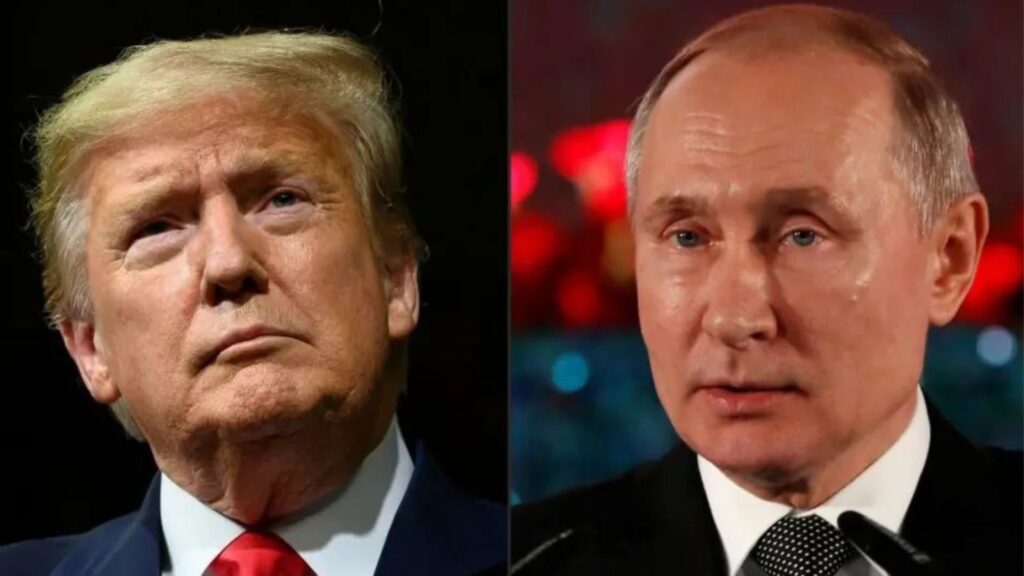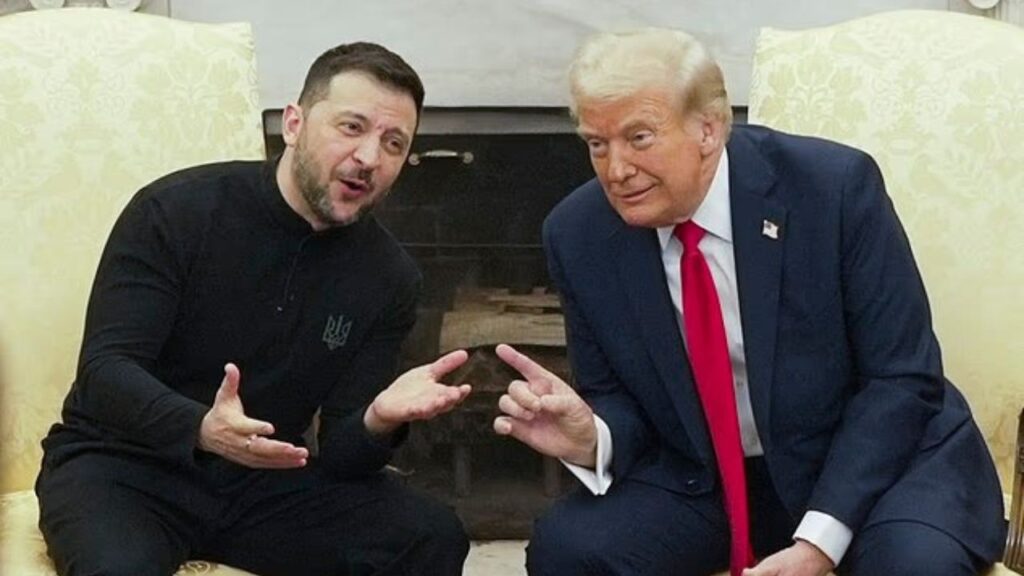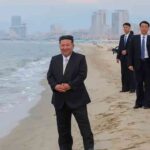President Donald Trump and Russian President Vladimir Putin held a nearly three-hour summit in Alaska on Friday, marking the first high-level US-Russia meeting since Moscow’s full-scale invasion of Ukraine in February 2022. The meeting has set the stage for potential peace negotiations, though European allies have expressed deep concern about the proposed terms.
Summit Outcomes and Next Steps
Following the Alaska meeting, Trump announced that he would host Ukrainian President Volodymyr Zelensky at the White House on Monday afternoon to discuss peace proposals. The President indicated that if those discussions prove successful, a subsequent meeting with Putin would be scheduled.
“The best way to end the horrific war between Russia and Ukraine is to go directly to a Peace Agreement, which would end the war, and not a mere Ceasefire Agreement, which often times do not hold up,” Trump wrote on his Truth Social platform early Saturday morning.
Trump characterized the summit as “great and very successful,” telling Fox News host Sean Hannity that he believes the parties are “pretty close to a deal,” though he acknowledged that “Ukraine has to agree to it. Maybe they’ll say no.”

Proposed Peace Framework
The discussions reportedly centered on several key components for a potential peace agreement:
Territorial Arrangements
Putin has demanded that Ukraine withdraw from the eastern Donetsk region, where Russian forces currently control approximately 70% of the territory. In exchange, Russia would halt further territorial expansion into Ukraine. However, sources close to Zelensky indicate the Ukrainian president would not be willing to cede Donetsk to Russian control.
Putin signaled some flexibility on territories outside the contested Donetsk region but maintained his core demand to “resolve the root causes” of the conflict, which would require Ukraine to cede territory and NATO to abandon eastern European expansion.
Security Guarantees
One of the most significant proposals involves offering Ukraine NATO-like security guarantees similar to Article 5 protections for alliance members. A diplomatic source revealed that “the American side proposed a non-NATO Article 5 type guarantee, supposedly agreed with Putin.”
However, questions remain about the practicality of such arrangements. Another source noted: “No-one knows how this could work and why Putin would agree to it if he is categorically against NATO and obviously against really effective guarantees of Ukraine’s sovereignty.”
European Reaction
The proposed framework has generated significant concern among European allies, with security experts describing the terms as heavily favoring Russia.
Wolfgang Ischinger, former German ambassador to the United States, posted on social media: “Putin got his red carpet treatment with Trump, while Trump got nothing. As feared: no ceasefire, no peace. No real progress – a clear 1-0 for Putin – no new sanctions. For the Ukrainians: nothing. For Europe: deeply disappointing.”
Tatiana Stanovaya of the Carnegie Russia Eurasia Center observed that “Trump seems to be shifting most of the responsibility to Kyiv and Europe, but reserving some role for himself.” However, she noted that Putin had not fully succeeded in getting Trump to publicly side with Russia and pressure Ukraine.
Czech Defence Minister Jana Cernochova commented that the summit “confirmed that Putin is not seeking peace, but rather an opportunity to weaken Western unity and spread his propaganda.”

Ukrainian Response
Despite the challenging terms being discussed, Zelensky expressed readiness to engage in the peace process. Following his conversation with Trump after the Alaska summit, the Ukrainian president wrote on social media: “Ukraine reaffirms its readiness to work with maximum effort to achieve peace.”
Zelensky has consistently emphasized the importance of security guarantees for Ukraine as part of any agreement, viewing them as essential to deterring future Russian aggression. After his call with Trump, he noted: “We also discussed positive signals from the American side regarding participation in guaranteeing Ukraine’s security.”
Putin’s Position
For Putin, the summit represented a significant diplomatic achievement, as he had been largely isolated by Western leaders since launching the invasion. The meeting occurred just a week after Trump had threatened new sanctions against Russia.
Putin expressed agreement with Trump that Ukraine’s security must be “ensured,” stating: “We are ready to work on this. I would like to hope that the understanding we have reached will allow us to get closer to that goal and open the way to peace in Ukraine.”
However, Russian officials have not confirmed discussions about a potential trilateral meeting with Zelensky, suggesting some uncertainty about next steps from Moscow’s perspective.
Ongoing Conflict
The diplomatic discussions continue against the backdrop of active warfare. The war, described as the deadliest in Europe for 80 years, has killed or wounded over a million people from both sides, including thousands of Ukrainian civilians.
Daily hostilities persist, with Russia launching 85 attack drones and a ballistic missile against Ukraine on Saturday, while Ukrainian forces conducted their own strikes. The Ukrainian General Staff reported 139 clashes along the front lines over the previous 24 hours.
Economic Implications
Trump indicated that the summit’s progress would influence his approach to economic pressure on Russia’s allies. He told Fox News that he would hold off on imposing tariffs on China for purchasing Russian oil, stating: “Because of what happened today, I think I don’t have to think about that now.”
Looking Forward
The summit concluded with both leaders expressing openness to future meetings. Putin suggested their next encounter could take place “in Moscow,” to which Trump responded that he could “possibly see it happening,” though he acknowledged he might “get a little heat on that one.”
The success of the emerging peace framework will largely depend on Monday’s White House meeting between Trump and Zelensky, where the Ukrainian leader will need to weigh territorial concessions against security guarantees while facing pressure to end a war that has devastated his country.






